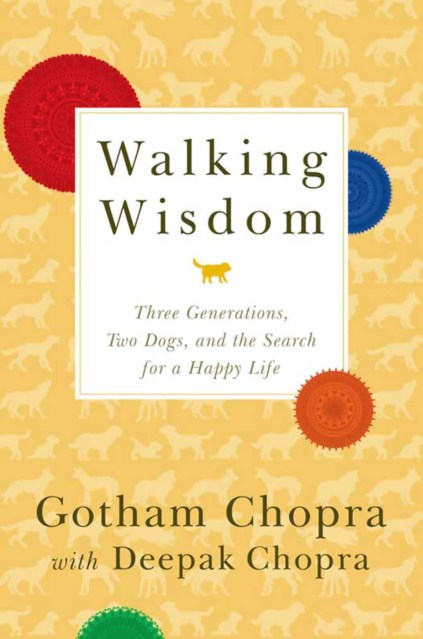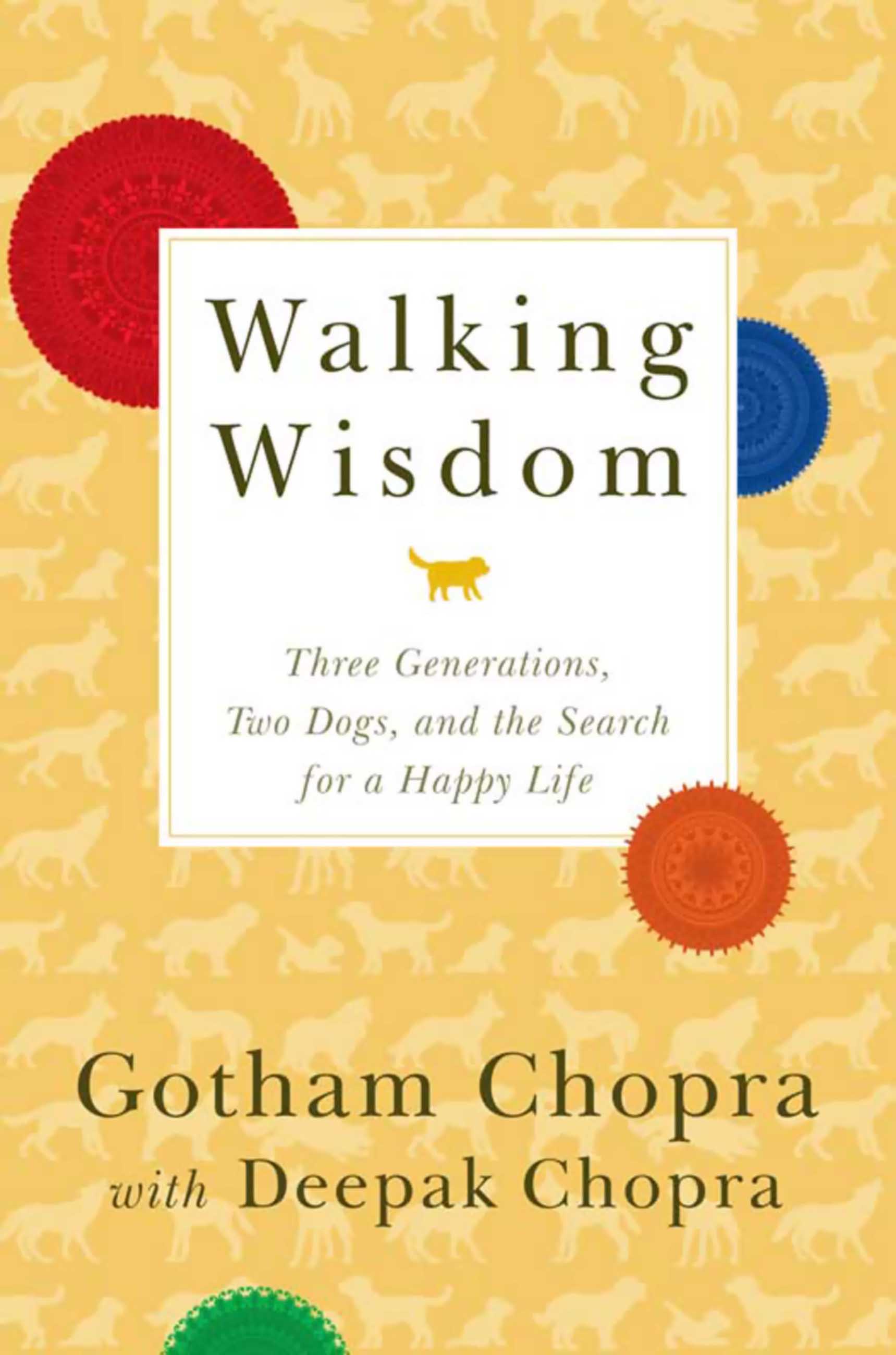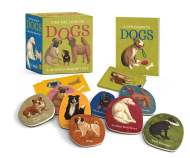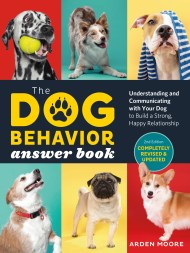Promotion
Use code MOM24 for 20% off site wide + free shipping over $45
Walking Wisdom
Three Generations, Two Dogs, and the Search for a Happy Life
Contributors
Formats and Prices
Price
$13.99Price
$17.99 CADFormat
Format:
- ebook $13.99 $17.99 CAD
- Hardcover $36.00 $46.00 CAD
This item is a preorder. Your payment method will be charged immediately, and the product is expected to ship on or around October 5, 2010. This date is subject to change due to shipping delays beyond our control.
Also available from:
–anonymous
Gotham Chopra considers himself a pretty average guy. He devours pizza, lives and dies by his hometown teams, and watches Kung Fu Panda with his son–daily. But his childhood wasn’t quite so average. Growing up, Gotham was exposed to the deepest reservoirs of knowledge that his famous father, Deepak, could find; his childhood was part spiritual, part scientific, and totally unique. Now a newly minted father himself, he’s contemplating the influences he wants to draw on for his own son. The first was no surprise: his father. The second was unexpected: his dogs.
From Nicholas, the blaze of energy and anarchy who turned the family upside down, to Cleo, a rescue mutt with food issues, the Chopra dogs taught the family about curiosity and wisdom, open-mindedness and passion, not to mention loyalty and pig’s ears. But what else, Gotham wondered? And how did these lessons compare to the ones that Deepak himself imparted?
Gotham would soon find out. When his mother took an unexpected trip to India and leaves instructions to look after Papa, father and son have an opportunity for male bonding on a big scale. That this bonding takes place on their daily walks seems almost natural. After all, Gotham also had in his care a nervous dog and an exuberant toddler, both with an insatiable need for exercise and exploration. So Gotham and Deepak walk and talk, discussing the laughs and licks that come with having a dog, along with the contradictions, complexities, and consequences of having children. They soon realize the qualities they observe and admire most in their pets are values we humans would do well to nurture within ourselves. They discover that our best friends have a lot to teach us.
Gotham and Deepak’s message may seem simple, but therein lies its brilliance. Heartfelt, endearing, and above all down to earth, Walking Wisdom offers readers both enlightenment and comfort, with a little bit of mayhem thrown in for good measure.
Genre:
- On Sale
- Oct 5, 2010
- Page Count
- 256 pages
- Publisher
- Hachette Books
- ISBN-13
- 9781401396268
Newsletter Signup
By clicking ‘Sign Up,’ I acknowledge that I have read and agree to Hachette Book Group’s Privacy Policy and Terms of Use







